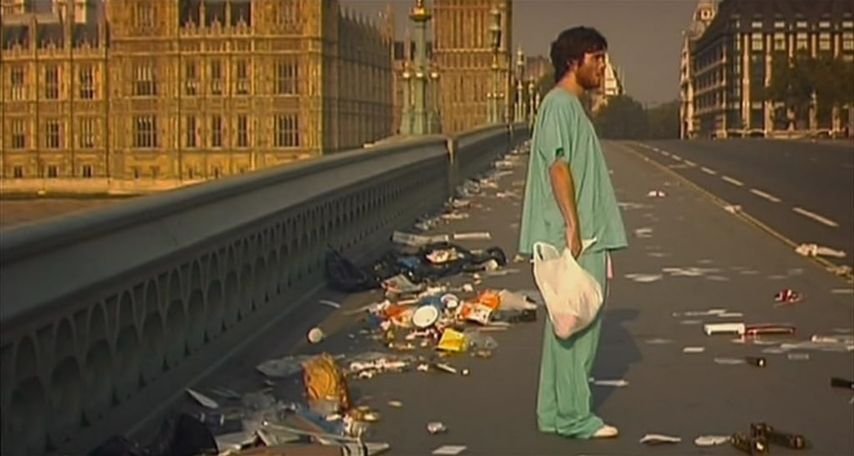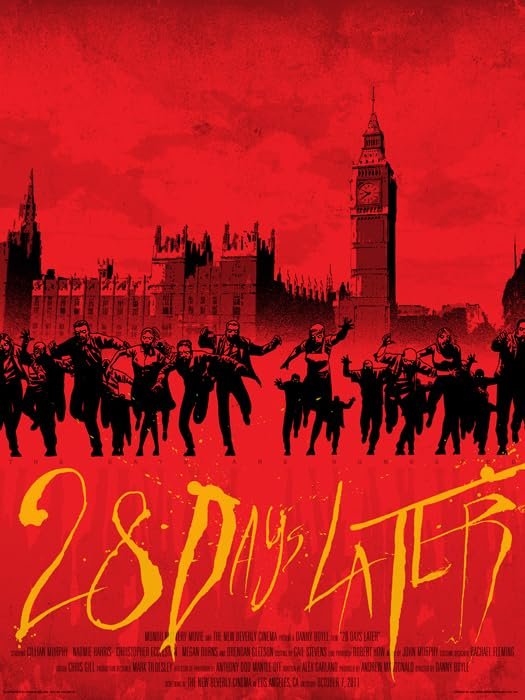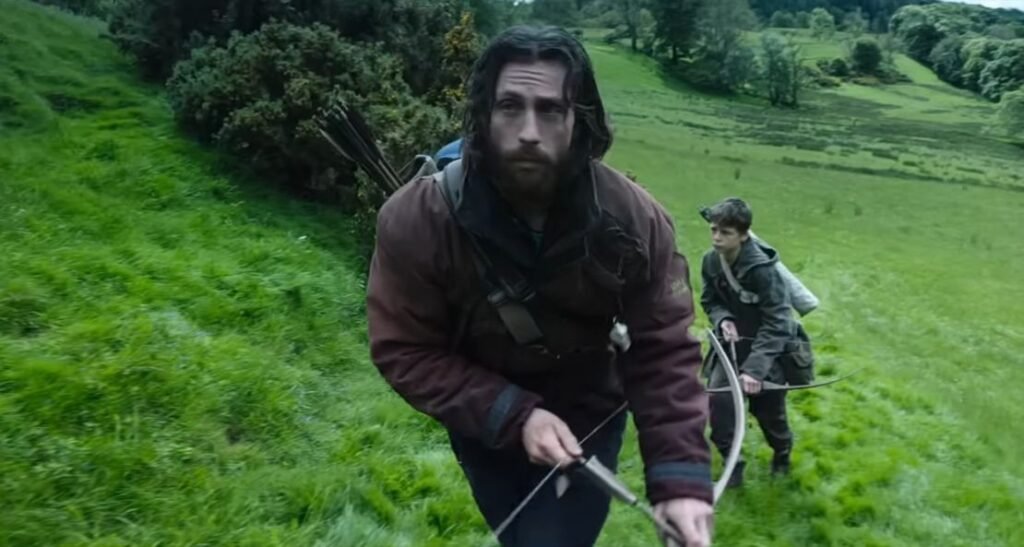
When the clock strikes 20 June 2025, cinema screens across the globe will usher in the long-awaited apocalypse—again.
28 Years Later, the third instalment in Danny Boyle’s iconic zombie franchise, promises to shake the undead genre to its core while rekindling the fire lit by its predecessors, 28 Days Later and 28 Weeks Later.
With Boyle reuniting with writer Alex Garland and an electrifying cast that includes Jodie Comer, Aaron Taylor-Johnson, and Ralph Fiennes, this chapter is poised to deliver chills, thrills, and a heap of blood-soaked chaos
The Legacy of the Rage Virus
When 28 Days Later debuted in 2002, it redefined zombie horror. Forget shambling corpses; this was fast-paced terror.
Audiences watched in horror as Cillian Murphy’s Jim awoke to a London overrun by infected, ravenous humans.

Its stark visuals, shot on Canon XL-1 digital cameras, gave the film a gritty, almost documentary-like feel that perfectly captured the chaos of societal collapse.
The 2007 sequel, 28 Weeks Later, built on this foundation with its harrowing exploration of rebuilding after disaster—only to watch everything crumble again.
But this new instalment takes an even bolder step. Set decades after the original outbreak, 28 Years Later shifts focus to a world long ravaged by the Rage virus, where survival has become an intergenerational struggle.
The iPhone Revolution
In an audacious cinematic move, 28 Years Later was shot entirely on iPhone 15 Pro Max devices.
This move goes beyond novelty, showcasing a significant step forward in technology.
Boyle and cinematographer Anthony Dod Mantle—Oscar winners for Slumdog Millionaire—harnessed cutting-edge smartphone capabilities to create an immersive, visceral experience.
Filming in rugged locations across Northumberland and Yorkshire, the decision to use iPhones allowed unprecedented mobility and innovation, elevating the film’s aesthetic.
Cillian Murphy Returns—Sort Of
Cillian Murphy’s character, Jim, has long been a centrepiece of the franchise’s legacy.
While Murphy did not appear in 28 Weeks Later, his return in 28 Years Later has been officially confirmed by Danny Boyle and Sony Pictures.
Murphy will reprise his role as Jim in a “surprising” capacity, as hinted by the film’s trailer, where an emaciated figure rises from a field.
Though details of Jim’s journey remain tightly guarded, his reappearance promises to deepen the franchise’s exploration of survival and humanity amidst chaos
The Chilling Trailer: A Teletubbies Twist
Speaking of spines, the 28 Years Later trailer opens with an unsettling juxtaposition: young children watching Teletubbies before chaos erupts, blood splattering across the TV.
It’s a masterstroke in creating dread and one of the many reasons the trailer has already become a fan favourite.
What Sets 28 Years Later Apart
Boyle’s latest entry doesn’t just rehash old ideas; it expands the lore. Themes of generational trauma and the persistence of humanity are woven into the narrative.
And while zombie purists might balk at the use of smartphones for cinematography, the result is a gritty yet polished visual experience that mirrors the franchise’s evolution.
Where to Start: Revisiting the Originals

For those new to the franchise, or veterans looking for a refresher, re-watching 28 Days Later is now easier—Sony plans to re-release the film on digital platforms after years of unavailability.
The timing couldn’t be better, allowing fans to dive back into the chaos before 28 Years Later hits cinemas.
A Triumphant Return for the 28 Days Later Franchise
28 Years Later promises not only to honour its predecessors but also to redefine the zombie genre once again.
With Danny Boyle at the helm and a stellar team of creatives and actors, this is one apocalyptic event you won’t want to miss.
Whether you’re here for the relentless action, the thought-provoking themes, or just a good scare, prepare to be captivated. Let the countdown begin.


